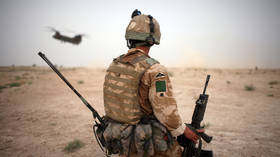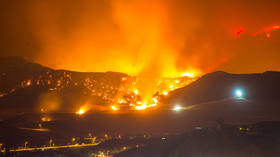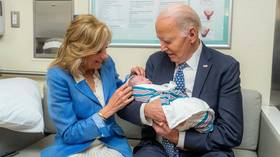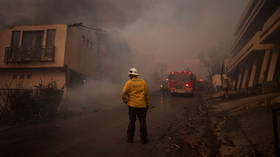‘Euromaidan movement grew from child into monster’
Ukraine is now further from national sovereignty than it was a year ago, with the IMF running its finances and an American-born Ukrainian, Natalie Jaresko, heading the Finance Ministry, Roger Annis, Editor, Newcoldwar.org told RT’s In the Now show.
Sanctions were strengthened against Russia as the EU and Canada updated their blacklist this week.
RT:What should Moscow do to get rid of this economic grip, the sanctions? Kiev’s troops have withdrawn from Donbass and there haven’t been any new reports of casualties there… It seems like many are quite hopeful that there could be a chance of peace.
Roger Annis: Many of us are hoping the same thing. I don’t think there is a lot Russia can do about the sanctions. The origin of them has been firstly the events in Crimea, following the decision of the Crimean people to secede from Ukraine in a democratic vote in referendum. And then the resistance of the people in Eastern Ukraine to the war that Kiev has imposed upon them.
The sanctions have been a result of the demands of the Western countries that Russia not support the will of the Crimean people and that it abandon the people of Eastern Ukraine to Kiev’s war. There is no way that Russia can do either on moral and political grounds or on the grounds of Russian national defense.
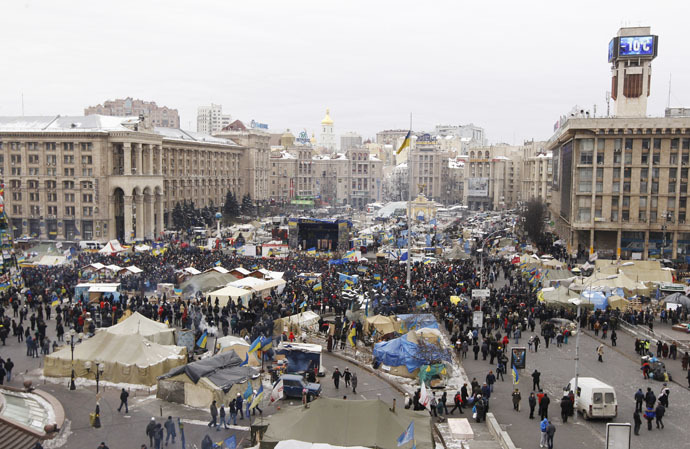
I think that the real onus is on people and the governments in the West to speak out against the sanctions because historically sanctions are a prelude to war. Certainly these sanctions are accompanied by the military buildup that NATO is conducting in many countries in the Eastern Europe.
So that is my hope is that people of the world will wake up to this threat not to succumb to so much of the anti-Russian propaganda that is so prevalent in the media in this country [USA] and other Western countries, and we get back to focusing the world’s attention on the really important issues, which are: social justice, climate, and so on.
RT:President Poroshenko wants UN peacekeepers in Ukraine. Moscow asks "What for? You already have OSCE observers; the Minsk peace plan doesn't contain this condition.” What're your thoughts on that? Would that make a difference at this point?
RA: I don’t think so, because firstly a long-term political solution is required to the conflict in Ukraine. Certainly the people of Eastern Ukraine have made their wishes clear- they want to see at the very minimal, at the very least, decentralized Ukraine in which the regions of Ukraine including Eastern Ukraine, the Donbass region, have autonomous political rights within a federation which they don’t have right now in the highly centralized Ukraine political setup.
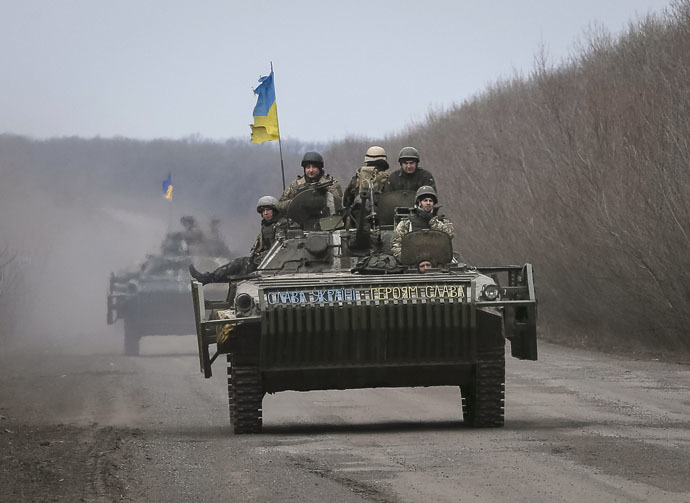
There is no way that short of a political agreement addressing those issues, and also short of the withdrawal of Ukraine’s military forces and the forces of the right-wing militias that are allied with Ukraine army; short of their withdrawal from Donetsk and Lugansk Republics, there is nothing for a UN international force to do. Any attempt to introduce foreign soldiers into the mix that complex is a real disaster. If political agreements then can be reached, maybe talk could be made of an international peacekeeping mission.
I must say, if you look at countries like Haiti, the record of such missions endorsed as they are by the UN Security Council is a very bad one. No, I don’t see a role for such a mission. It is really a dodge way from the political solutions that are required.
RT:It's been one year since Ukraine first experienced violence and mass killings during the so-called Euromaidan. Did those behind this protest think it would turn into a full-blown civil war?
RA: I doubt that many did. Some did because some made it happen. Some took the Maidan protest movement and turned it into a violent movement of civil war in Ukraine. But no, I think for many who were on Maidan and supporting it, and certainly many were looking internationally at this and seeing a kind of surface of it as a protest movement against authoritarian government did not intend this.
The past year has been tragic. The Euromaidan movement has grown from a child into a monster that has devoured the country and the nation. Where is Ukraine sovereignty today? The IMF is running the finances of the country; there is an American running the ministry of finance. So Ukraine is further today than it was a year ago to real national sovereignty. And it has created immense conflicts now with its neighbors, its large neighbor to the East [Russia], its new neighbor now - Crimea to the South. I think it’s been a year of tragedy and disappointment. I hope we will see more of the encouraging signs of people who are living now with the austerity program of the new Kiev government, living with a horror of the war will now ask very deep questions and turn to political solutions that unite the people of Ukraine and find a common project for a real country, and one that is socially progressive and also a peace for its neighboring countries.
The statements, views and opinions expressed in this column are solely those of the author and do not necessarily represent those of RT.
The statements, views and opinions expressed in this column are solely those of the author and do not necessarily represent those of RT.



